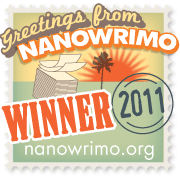So last night I was in London to meet up with a few friends from university, which we tend to do every couple of months. One of the things that came up during the times when the conversation was actually about writing, was editing. Or, more specifically, editing out bits that you want to keep but don’t actually need in your novel to tell the story.
The first example was from an as-of-yet unpublished children’s book, in which a girl wants her best friend to accompany her somewhere. She’s worried about her parents saying no, and then they say yes.
The point that my friend (who is an editor) made, was that; if there was not going to be an issue, then all you really need is for the friend to say she’s coming along. If you spend time with your main character worrying about something that isn’t going to be a problem then you’re just deviating away from the actual plot.
She brought up another example from an online course that she teaches, in which a student had said in his notes that “They went on a journey, nothing much happened – I’ll come back to that later.” If nothing much happens, then nothing else needs to be said.
I think that quite often when writing, you end up with a funny anecdote or an extra chapter, that you love, but that doesn’t actually add anything to the story, and it’s difficult to take it out. But the tighter your novel is, the more likely it is to get published. Supposedly. I’ve heard it said that the more successful you are, the less you’re edited, and the more you can get away with leaving those parts in.
The most obvious example is Harry Potter. Now I love Harry Potter, I do. But half of the books in the series could easily be used as door stops or murder weapons they’re so thick. If book six didn’t exist, you would still get to the end of the same story with just a few paragraphs of added explanation. And a large chunk of the last book was very similar to Frodo and Sam’s story in The Two Towers – They walked.
I read a fantasy book last year that was roughly 1000 pages long, and over half of it was spent with the main character wandering around in a subplot that had very little relevance to the main story, other than to prove he was amazing at everything he tried and an absolute genius. Something which we already knew because it had been said about a hundred times before. I actually gave up reading that book for about six months because it just wasn’t going anywhere.
So have you ever read a book that was full of unnecessary chapters? Ever written something that you loved but didn’t really need to be in your story?
It’s a difficult balance to get right; not enough extra detail and your writing will read like a list of events that get a character from A to B with no real depth or actual story. But too much and you end up losing the main plot in a tangle of little stories that don’t go anywhere but make you smile so much that you left them in anyway!



